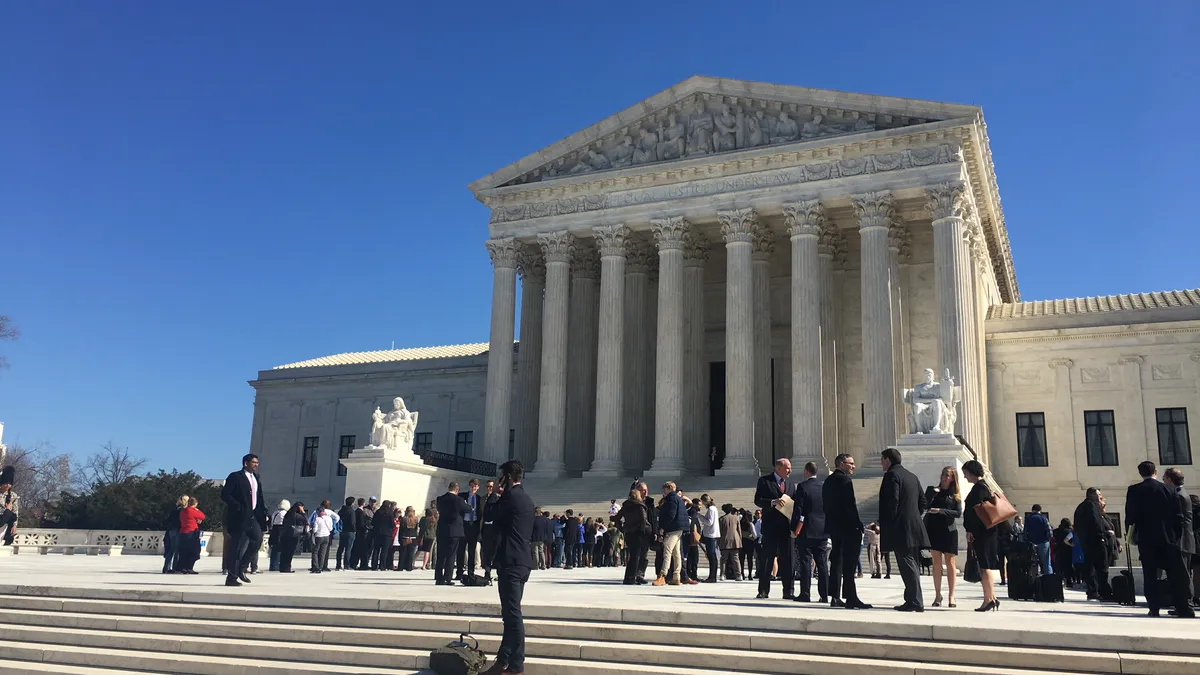Dive Brief:
- Auto service advisors are exempt from the Fair Labor Standards Act's (FLSA) overtime requirements, the U.S. Supreme Court ruled April 2 with a 5-4 vote (Encino Motorcars, LLC v. Navarro, No. 16-1362).
- One of the law's exemptions refers to any "any salesman, partsman, or mechanic primarily engaged in selling or servicing automobiles, trucks, or farm implements."
- The 9th U.S. Circuit Court of Appeals, in considering Encino Motorcars, applied a 2011 U.S. Department of Labor (DOL) regulation to find that “salesman” did not include a service advisor. The Supreme Court, hearing this case previously, found that DOL didn't properly explain its rule and that it was therefore not entitled to deference. It didn't initially rule on the exemption question but the case eventually made its way back to the High Court.
Dive Insight:
While this ruling may appear to be somewhat limited in scope, it may be the beginning of an employer-friendly shift.
It has long been thought that the FLSA's exemptions should be construed narrowly, to cover the most employees possible. Indeed, the 9th Circuit made note of that, the Supreme Court said; the Court, however, said it "rejects this principle as a guide to interpreting the FLSA. Because the FLSA gives no textual indication that its exemptions should be construed narrowly, they should be given a fair reading."
Writing for Ogletree Deakins, Alfred B. Robinson, Jr., and Hera S. Arsen called that assertion "striking" in a blog post, and noted that it "may create new opportunities for applying these FLSA exemptions."
A Proskauer Rose attorney, Allan Bloom, agrees. "After today," he wrote in the National Law Review, "it’s difficult to defend the 'narrow construction' argument as anything more than a misguided maxim."














